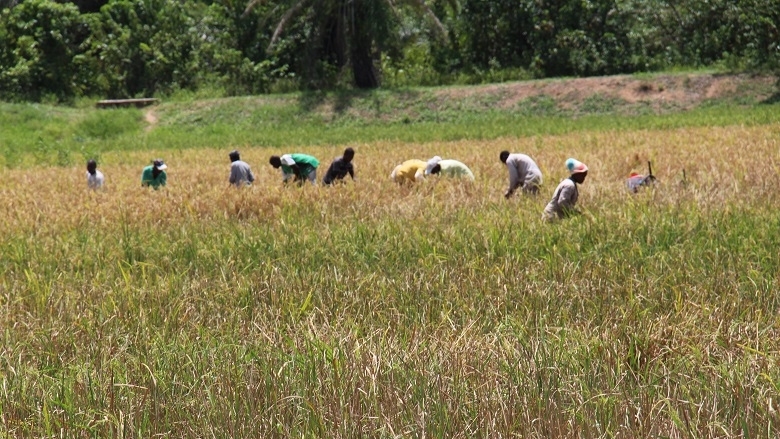I will start this week's blog post with a quote from my professor that he said in today’s lecture, “Water is intimately linked to food, if we don’t have a substantial amount of water then that means that your capacity to irrigate and secure your food supply is limited” (Richard Taylor). This quote seems reasonable to understand, and it is a phrase that is very comprehensible. Understanding this quote in relation to the African continent is where the complications begin. I will examine the geography of this immense continent as I am very interested in knowing where there are the greatest areas of irrigation and why, as well as the distribution of the food from these centers.
In examining this continent it is essential to see that every area has a different landscape. Towards the east and south of Africa there exists high plateaus which create these raised platforms
(Taylor, R) in these areas rainfall tends to be greater since higher altitudes experience more rainfall. On the other hand, the north and west of Africa tend to have lower altitudes between 400 and 600 meters
(Taylor, R).
 |
| The map at the top (Jackenjuul) shows the topography of Africa while the bottom (ResearchGate) one shows the precipitation in Africa. One can see the connection between higher altitudes and increased rainfall. |
After analyzing the continent as a whole, it is understandable that Sub-Saharan Africa is the most vulnerable area in Africa in terms of climate change affecting water resources. The Sub-Saharan region of Africa depends on rainfall for its agriculture which is why it is a highly concerning topic today
(Kotir, 2010). Thus, water and food in this region is a topic that brings many questions. How will the effects of today’s climate change affect food security? According to this article by Kotir, climate change will most certainly “affect all components of food security...and hence increase the risk of hunger in the region”
(Kotir, 2010). This brings us back to the quote from the beginning of my blog post today, water is essential to food, without it all of Sub-Saharan Africa will be in danger.
 |
| This map shows food insecurity in the world. The red regions are those most affected by food insecurity, Sub-Saharan Africa is one of them (McDermott, 2010) |
To add to the concern about water availability in Africa, I continued to explore my topic in regard to the geography of the continent with three other countries. Tanzania, an eastern African country is located right around the African Great Lakes, so one would presume better water access. This is not the case, the water issue in Tanzania is also a grave one as residents rely mostly on decentralized groundwater for their needs
(Becerril et al.). In another instance, Sudan which houses ⅔ of the Nile River is one of the largest agricultural African countries. Its dependence on water and rainfall is extreme to guarantee the production of crops. However, due to mismanagement and degraded infrastructure, Sudan is now suffering from grave water scarcity concerns
(Becerril et al.). The one bit of good news I found today has to do with Liberia, in the west of Africa. The government in Liberia, with the help of non-governmental organizations and other institutions, has achieved better access to safe water through water pumps. With agriculture dominating 60% of the Liberian society, water is crucial here
(Export.gov).
 |
| Sustainable farming is being adopted in Liberia (World Bank) |
The Liberian government is an example for many governments in the rest of Africa. Climate change will continue to affect the water supply for the world. Climate change is most likely altering the rainfall patterns in the whole of Africa and mostly in a negative way. Agriculture is the main job creator in the African continent
(United Nations, 2013), without agriculture the economy of Africa has nowhere to go, thus without water Africa could collapse. If the problem of food scarcity does not scare you in terms of water loss, then maybe the potential of having a whole economy collapse due to no water would mobilize more action in terms of climate change and its connection to water and agriculture in Africa.





Comments
Post a Comment